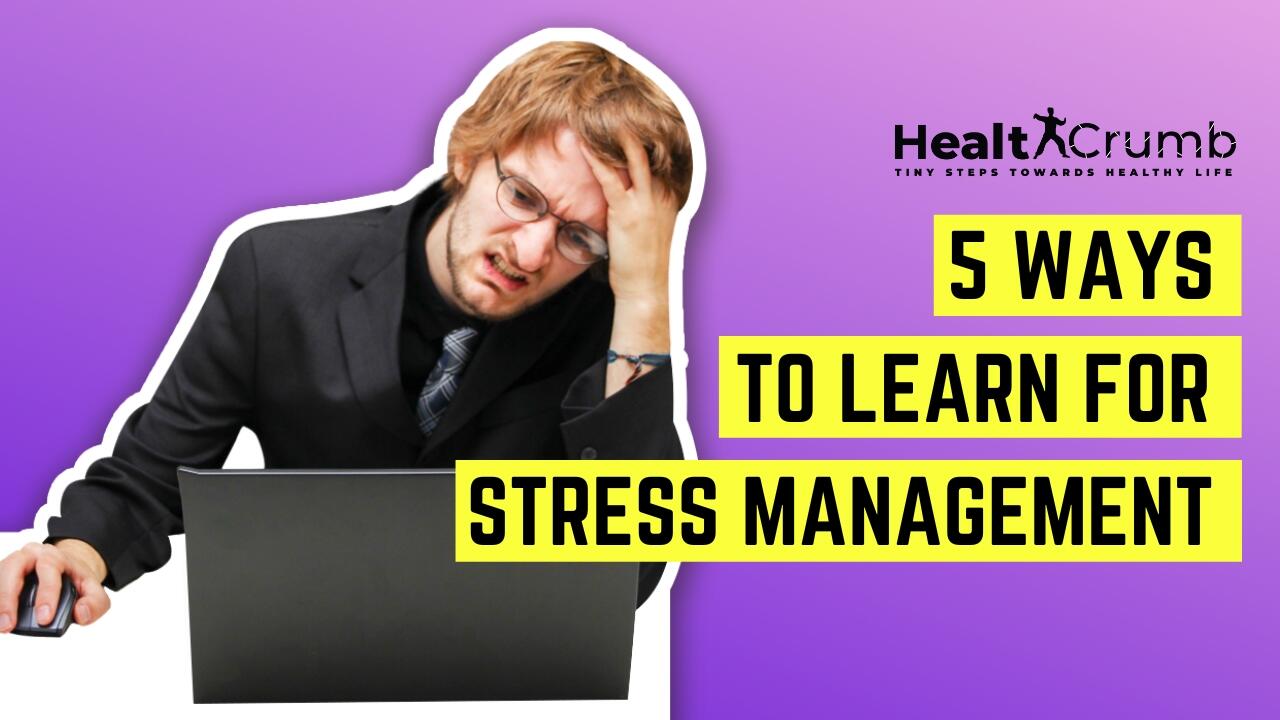Introduction
Stress is a part of life, we just shouldn’t let it control us. There are many things we can do to manage stress and live happier and healthier lives. Learning some new skills is a great way to help reduce stress levels. In this blog post, we will explore five of the best skills to learn for better stress management. From yoga and meditation to journaling and time management, these techniques can help you take control of your stress and live a more peaceful life.
What is stress?
Stress is a response to an external or internal stimulus that causes physical or psychological tension. It can come from things like work, school, relationships, and other life events. Everyone experiences stress from time to time, but it’s important to manage it healthily.
There are several different types of stress. Acute stress is the most common type of stress and it’s usually caused by a short-term event, like a deadline at work or an upcoming exam. Episodic acute stress is similar to acute stress, but it’s characterized by periods of high stress followed by periods of low stress. Chronic stress is long-term and it can be caused by things like chronic illness, job loss, or divorce.
There are different ways to cope with stress: some people exercise, some people meditate, and some people journal. There is no right or wrong way to cope with stress – it’s all about finding what works for you. If you’re feeling overwhelmed by stress, talk to your doctor or a mental health professional who can help you healthily manage your stress.
How is stress caused?
There are many different ways that stress can be caused. It can be caused by a challenging event or situation, such as a job loss, divorce, or the death of a loved one. It can also be caused by chronic stressors, such as living in a high-crime area or having a demanding job. Stress can also be caused by psychological factors, such as anxiety or depression.
There can be several symptoms of stress. Some common symptoms include feeling anxious, irritable, or overwhelmed; having difficulty sleeping; experiencing headaches or body aches; and feeling depressed or hopeless. The symptoms of stress are furthermore discussed in detail below.
Symptoms of stress
There are a variety of symptoms that can indicate that someone is experiencing stress. These can vary from person to person, and may also depend on the severity of the stress. Some common symptoms of stress include:
- Feeling overwhelmed or out of control
- Difficulty sleeping or concentrating
- feeling irritable or angry
- Difficulty eating or overeating
- Increased use of alcohol, tobacco, or other substances
- Withdrawing from friends and activities
If you are experiencing any of these symptoms, it would be recommended to see a doctor as soon as possible. Several skills can help you overcome stress, which will be discussed in more detail below.
Consequences of stress
Stress can have many negative consequences on your health, both physical and mental. If you’re not able to effectively manage your stress levels, you may experience:
- Increased anxiety or panic attacks
- Insomnia or other sleep problems
- Fatigue
- Headaches
- Stomach problems
- Muscle tension or aches
- Chest pain
- Irritability or moodiness
In the long term, chronic stress can lead to more serious health problems, such as high blood pressure, heart disease, obesity, and diabetes. It can also worsen existing mental health conditions such as depression or anxiety. If you’re struggling to cope with stress, it’s important to seek help from a mental health professional.
What is stress management?
Stress management is the process of identifying and addressing the sources of stress in your life. It can involve changes to your lifestyle, job, or relationships. Stress management is a key skill to learn for overall wellness and quality of life.
Many different techniques can be used for stress management. Some people find that exercise, relaxation techniques, or journaling help them to manage stress. Others may need to make more significant changes to their lifestyle, such as reducing work hours or seeking counseling.
No matter what approach you take, the goal of stress management is to reduce the amount of stress in your life and help you to cope with it healthily.
5 best skills to learn for stress management
Many skills can help with stress management. Some useful skills to learn include:
- Time management: This involves learning how to plan and structure your time in a way that minimizes stress. It can be helpful to set regular goals and deadlines and to break up tasks into manageable chunks.
- Relaxation techniques: Several different relaxation techniques can be effective in managing stress. Deep breathing, progressive muscle relaxation, and meditation are some examples of relaxation techniques.
- Cognitive restructuring: This involves changing the way you think about stressful situations. Tell yourself you’re capable of handling every situation, no matter what.
- Communication: Learning how to communicate effectively can help reduce stress in relationships. This includes being assertive (not aggressive or passive), active listening, and sharing your feelings openly.
- Coping strategies: Many different coping strategies can be useful in managing stress. These include exercise, journaling, and spending time with friends and family.
Importance of stress management
Stress is a part of life, but it doesn’t have to rule it. Learning stress management skills can help you take control of your stress and improve your overall well-being.
There are many benefits to managing stress effectively. When you manage stress well, you may:
- Feel more relaxed and in control
- Sleep better
- Have more energy
- Be more productive
- Handle difficult situations more effectively
- Improve your relationships
- Lower your risk for health problems
Benefits of stress management
It is no secret that stress management skills are some of the most important skills that you can learn to manage your overall stress levels. After all, stress is an inevitable part of life, and learning how to effectively manage it can make a world of difference in your overall health and well-being.
Many different benefits come along with learning stress management skills. For one, it can help to improve your mood and increase your overall sense of calm and relaxation. It can also help to boost your immune system, improve your sleep quality, and increase your energy levels. Additionally, managing stress can also help to improve your focus and concentration, as well as reduce anxiety and depression symptoms.
Conclusion
Learning how to manage stress is an important life skill that everyone should possess. The five skills listed in this article are some of the best ways to manage stress and keep it from taking over your life. If you find yourself struggling with stress, take some time to learn one or more of these skills and put them into practice. You’ll be glad you did.



